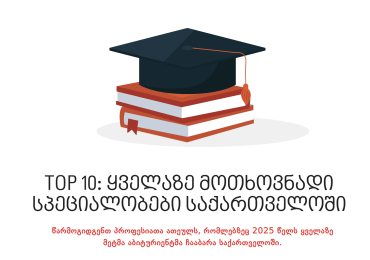ECONOMIC FREEDOM, which stimulates the economic development of the country, is defined by how actively the government interferes in business, what portion of the country’s economy depends on functions carried out by the state, and what the legal environment is like in terms of the protection of private property. Except in rare instances, economic and political leaders in western countries mainly agree that economic freedom is good for a country. These countries consistently achieve high economic freedom scores. For example, Denmark is ranked 12th globally in terms of economic freedom, despite the fact that local taxes are quite high in the country. In fact, Danes are taxed at a rate of 50%, which means that half of all income is paid in taxes. However, as far as economic freedom indicators are concerned, which include the protection of private property (1st), low level of corruption (1st) and freedom of investment (2nd globally), Denmark is one of the mostly highly-ranked countries in the world. The highest level of economic freedom has been achieved in Hong Kong and Singapore, whereas North Korea (178th place), Cuba (177th place) and Venezuela (176th place), are the countries with the lowest rankings.
Extensive research on economic freedom has been conducted by two authoritative US organizations – the Fraser Institute and the Heritage Foundation. They compile economic freedom indexes based on various researches. According to the Fraser Institute’s Economic Freedom of the World: 2015 Annual Report, Georgia ranks 12th among 157 countries. According to the 2016 Index of Economic Freedom published by the Heritage Foundation, Georgia holds 23rd place among 178 countries, and therefore is grouped among the countries that are considered to be “mostly free”. Last year Georgia held 22nd place, falling back one place in the index. We will discuss Georgia’s position in the Economic Freedom index prepared by Heritage Foundation in the present article, as it’s the most recent data published.
The Heritage Foundation’s Economic Freedom index rates countries on ten economic freedom factors. The maximum possible score for each factor is 100. Georgia received its highest score (88.6) in the external trade freedom category, placing at 7th globally. Georgia received its lowest score (40.0) in the protection of property rights category (69th worldwide).
These ten factors are grouped into four main thematic categories, which include Rule of Law, Limited Government, Regulatory Efficiency, and Open Markets.
RULE OF LAW
Georgia received its lowest score in the Rule of Law category, which incidentally covers the property rights and freedom from corruption criteria.
Georgia scored 40 points in the Protection of Property Rights category. The Heritage Foundation evaluated the score as follows:
“The court system is highly inefficient, and delays are so long that they deter the use of the court system. Corruption is present, and the judiciary is influenced by other branches of government. Expropriation is possible.”
Georgia has been scored this way since 2010. The evaluation is based on the analysis of the legislation and practice that exists in the country.
The Corruption Perceptions Index prepared by Transparency International was used in the evaluation of the Freedom from Corruption category. According to that Index, Georgia received 52 points out of 100. Corruption impedes economic development, as feelings of vulnerability and uncertainty appear in economic relations. It’s noteworthy that Georgia received the same score in 2012, which means that no progress has been documented in that direction over the last three years.
LIMITED GOVERNMENT
The government’s level of interference in the economy is evaluated by the amount of government (budget) expenditures and fiscal freedom.
The budget amount is defined in relation to the country’s GDP. Since according to Georgian legislation, budget expenditures may not exceed 30% of GDP, Georgia observes this threshold. However, if the government is able to lower its expenditures further (under 30% of GDP), this will increase the level of economic freedom. Currently, Georgia ranks 67th in terms of expenditures, which is the second worst position for the country after the property rights category.
Fiscal freedom is calculated by the tax rate and the correlation between budget income (generated through taxes) and GDP. Only the maximum level of income and profit taxes are taken into consideration when evaluating tax rates (in Georgia, those rates are 20% and 15% respectively). In general, Georgia has quite a high score in terms of fiscal freedom (87.6), which is second only to the country’s external trade freedom score. In the case the country adopts the Estonian model of profit tax collection, that criterion will improve significantly.
REGULATORY EFFICIENCY
Regulatory efficiency covers business freedom, freedom of the labor market, as well as monetary freedom.
Georgia received a high score in terms of business freedom (86.5). The Economic Freedom index used the results of the World Bank’s Doing Business Index when evaluating the country’s performance in this category. The Doing Business Index studies the impact of government regulations on launching, the operation and closure of businesses. Georgia ranks 24th among 189 countries in that Index. However, Georgia occupies the worst positions in terms of business closure (101st place), customs procedures (78th place) and access to electricity (62nd place). As for ease of property registration and launching a business, Georgia holds the 3rdand 6th places respectively.
The freedom of labor market (Georgia’s score is 75.7) evaluates the legislation regulating a country’s labor market. These regulations include mandatory minimum wage (Georgia has established no mandatory minimum wage), regulations impeding the recruitment of the workforce (for example, mandatory qualification requirements), strict definition of work hours, difficulty of dismissing a redundant workforce, amount of mandatory compensation and length of notice on dismissal. This means that the less the government is involved in labor relations between the employee and employer with its mandatory regulations, the higher the freedom of labor market is. Georgia is ranked 26th in that category.
Georgia received 80.5 points in terms of monetary freedom. This category pertains to the inflation rate and the government’s level of involvement in setting prices. An ideal situation is when a low level of inflation is achieved without microeconomic interventions from the government (for example, price subsidies, setting price thresholds and so on). The calculation of the monetary freedom score is determined with the use of a formula, where mediumweighted inflation rates for the last 3 years, and the level of price control are used as variables. In 2013, the annual inflation rate in Georgia was 2.4%, in 2014 – 2% and in 2015 – 4.9%.
OPEN MARKETS
This category covers trade freedom, investment freedom and financial freedom.
Georgia received its highest score (88.6), and occupies the highest place (7th) in the Trade Freedom area. This criterion is defined based on the tariffs and non-tariff barriers imposed by the country on imports and exports. Georgia’s high score is conditioned by low tariffs on imports, and free trade agreements with the EU, Turkey and CIS countries (excluding Russia). This indicator will improve even further when Georgia signs a free trade agreement with China.
Georgia received 80.0 points in the Investment Freedom category. A country can receive 100 points in that category only when the bringing in or withdrawal of investments to and from the country is absolutely free and, when there are no discriminatory rules for foreign investors (currently there are certain discriminatory regulations concerning the purchase of agricultural land in Georgia). Additionally, levels of bureaucracy, security, and political influences also have an impact on the score.
Georgia score in the Financial Freedom category was fairly low. Financial freedom entails the efficiency of the banking sector, as well as the financial sector’s freedom from government control and intervention. The existence of state banks or other state-owned financial institutions decreases competition, and therefore is considered harmful to financial freedom. This category also evaluates the level of independence of national banks and regulatory bodies from the government. Georgia’s undeveloped securities market is considered to be the country’s main setback.
Overall, Georgia’s economy is mostly free. However, according to the index below (see chart), Georgia has demonstrated a negative tendency over the last two years, as the country has moved from 21st down to 23rd place.
If Georgia is to move forward in the Index (which would be a direct or indirect indication of the improving business environment in country), then it needs to overcome deficiencies in such essential areas as rule of law, budget expenditures and high inflation. Georgia has significant problems as far as protection of private property is concerned (rule of law category), which are directly connected to the problems that exist within the judicial system. Correspondingly, this problem will be solved only when the country develops more efficient, independent and competent courts. Additionally, the government has promised to reduce budget expenditures. This will happen if Georgia adopts the Estonian model of profit tax collection. This will not only improve the country’s budget expenditure standing, but will also help the country reduce its inflation rate. Raising the economic growth-rate and the stabilization of the lari’s exchange rate are also important for reducing the inflation rate.
We should keep in mind that the world is not standing still in terms of economic freedom. The average world economic freedom score is slowly rising, and if Georgia remains content with its results, then it will gradually start to lag behind the other countries. This downgrade will not only be present in the form of mathematical changes in the Index, but will eventually have a negative impact on Georgia’s image as a place to invest and do business. Therefore, Georgia needs many fast-paced, medium or long-term economic reforms.
GEORGIA’S SCORES
The Economic Freedom Index compiled by Heritage Foundation shows that property rights, corruption and influence on the courts are the main challenges facing the country.

















